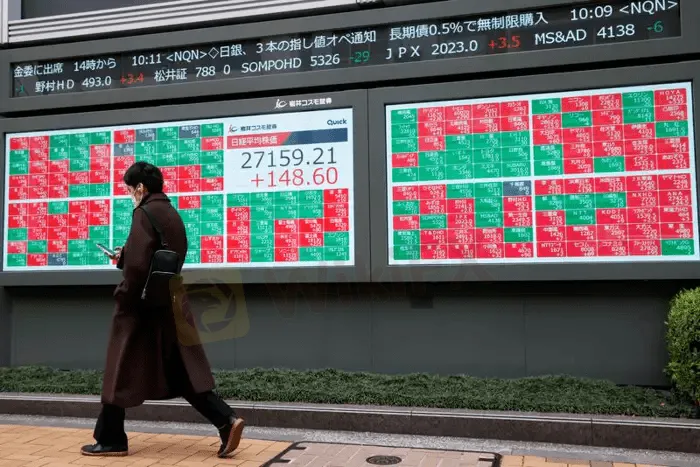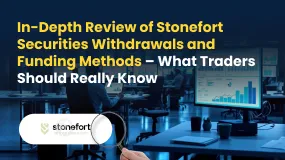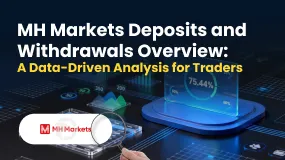简体中文
繁體中文
English
Pусский
日本語
ภาษาไทย
Tiếng Việt
Bahasa Indonesia
Español
हिन्दी
Filippiiniläinen
Français
Deutsch
Português
Türkçe
한국어
العربية
Volatility subsides after Credit Suisse rescue, but fears remain
Abstract:A volatile day looms in Asia on Monday, as investors’ relief at a rescue deal for Credit Suisse and co-ordinated support from global central banks was tinged with nerves over how deep troubles run in the world’s banking and financial system.

European futures rose 0.5% and S&P 500 futures rose 0.4% in bumpy trade. FTSE futures rose 0.3%. In cash trading a bounce for banks in Tokyo retraced and most markets in Asia lost ground.
MSCIs broadest index of Asia-Pacific shares outside Japan fell 0.6%.
While the volatility has subsided for now, investors remained fearful about what could happen next after a week in which a systemic lender in one of Europes financial capitals was brought to its knees by the turmoil in the bond market resulting from the collapse of Silicon Valley Bank.
Over the weekend, UBS said it will buy Credit Suisse for 3 billion francs ($3.2 billion) and assume up to $5.4 billion in losses, a shotgun merger engineered by Swiss authorities that investors hope can head off an even bigger mess in global markets.
“The market‘s taken a positive view that that’s one area of concern thats been cauterized,” said Jason Wong, a senior strategist at BNZ in Wellington.
“But it doesnt solve the U.S.-banking specific issues, where deposits are going out the door into safer banks,” he said.
“We‘ve got to get confidence back into that banking sector, and probably more needs to be done or a week from now we’ll still be facing the same sorts of issues.”
Central banks including the U.S. Federal Reserve, the European Central Bank and Bank of Japan on Sunday pledged support for market liquidity by increasing the frequency of seven-day U.S. dollar-swap operations from weekly to daily.
The BOJ said there were no bids for dollars during its operation on Monday, potentially a positive sign if it signals there isnt urgent demand.
The central banks assurances were enough to steady selling without reversing it.
Japans Nikkei fell 0.4% and the Hang Seng fell 0.9%, with Hong Kong financials down 1%. Financials in Australia fell 0.7%.
U.S. Treasuries were sold too, to wind back some of last weeks wild rally. Dealers said the outlook remains clouded by the fragility of banking confidence.
Stability risks
Investors still face a situation that remains unnerving on several counts.
Firstly, authorities efforts to calm things down havent been entirely successful yet and have also drawn attention to the scale of problems.
Banks sought record amounts of emergency liquidity from the Federal Reserve last week and depositors seem skittish.
Secondly, Credit Suisse shareholders have taken heavy losses and some bondholders appear to be left with nothing after the bank said some 16 billion francs in debt will be written down to zero – raising risks for exposure to banks everywhere.
“Investors are trying to price out stability risks, but also having to process having their assets written down to save depositors,” said Damien Boey, chief equity strategist at Sydney-based investment bank Barrenjoey.
“The key question is whether solvency or liquidity concerns are sufficiently addressed by bailout/merger attempts to make deposit runs stop. The answer isnt clear yet.”
One positive on Monday were yen cross-currency swaps, a measure of non-U.S. investor demand for dollars. They shrank to minus 35 basis points or half their levels last week, in a hint of some respite in market funding conditions.
Benchmark 10-year Treasury yields rose nine basis points to 3.49%. Two-year yields rose 10 bps to 3.94%. U.S. interest rate futures were bouncing around, and by mid morning in Hong Kong had pared half their early losses.
Ahead of a Federal Reserve meeting on Wednesday, markets were pricing about a 60% chance of a 25 bp rate hike before embarkibng on a series steady rate cuts as early as June.
Rates pricing is likely to remain volatile while there is concern over regional banks in the United States. A U.S. official said on Sunday that deposit outflows had slowed and in some cases reversed.
But first First Republic also had its credit rating pushed deeper into junk status by S&P Global and elsewhere efforts to raise capital were hitting difficulties.

Disclaimer:
The views in this article only represent the author's personal views, and do not constitute investment advice on this platform. This platform does not guarantee the accuracy, completeness and timeliness of the information in the article, and will not be liable for any loss caused by the use of or reliance on the information in the article.
Read more

Garanti BBVA Securities Exposed: Traders Report Unfair Charges & Poor Customer Service
Have you been financially ruined through chargebacks allowed by Garanti BBVA Securities? Do you have to wait for hours to get your queries resolved by the broker’s customer support official? Did the same scenario prevail when you contact the officials in-person? Failed to close your account as Garanti BBVA Securities officials remained unresponsive to your calls? Many have expressed similar concerns while sharing the Garanti BBVA Securities review online. In this article, we have shared some complaints against the broker. Take a look!

In-Depth Review of Stonefort Securities Withdrawals and Funding Methods – What Traders Should Really
For any experienced forex and CFD trader, the mechanics of moving capital are as critical as the trading strategy itself. The efficiency, security, and transparency of a broker's funding procedures form the bedrock of a trustworthy, long-term trading relationship. A broker can offer the tightest spreads and the most advanced platform, but if depositing funds is cumbersome or withdrawing profits is a battle, all other advantages become moot. This review provides a data-driven examination of Stonefort Securities withdrawals and funding methods. We will dissect the available information on payment options, processing times, associated costs, and the real-world user experience. Our analysis is anchored primarily in data from the global broker regulatory inquiry platform, WikiFX, supplemented by a critical look at publicly available information to provide a comprehensive and unbiased perspective for traders evaluating this broker.

MH Markets Deposits and Withdrawals Overview: A Data-Driven Analysis for Traders
For any experienced trader, the integrity of a broker is not just measured by its spreads or platform stability, but by the efficiency and reliability of its financial plumbing. The ability to deposit and, more importantly, withdraw capital without friction is a cornerstone of trust. This review provides an in-depth, data-driven analysis of the MH Markets deposits and withdrawals overview, examining the entire fund management lifecycle—from funding methods and processing speeds to fees and potential obstacles. MH Markets, operating for 5-10 years under the name Mohicans Markets (Ltd), has established a global footprint. With a WikiFX score of 7.08/10, it positions itself as a multi-asset broker offering a range of account types and access to the popular MetaTrader platforms. However, for a discerning trader, the real test lies in the details of its payment systems and the security of their funds. This article dissects the MH Markets funding methods withdrawal experience, leveraging pr

GAIN Capital Review: Exploring Complaints on Withdrawal Denials, Fake Return Promises & More
Is your forex trading experience with GAIN Capital full of financial scams? Does the broker disallow you from withdrawing your funds, including profits? Have you been scammed under the guise of higher return promises by an official? Does the GAIN Capital forex broker not have an effective customer support service for your trading queries? Concerned by this, many traders have shared negative GAIN Capital reviews online. In this article, we have discussed some of them. Read on!
WikiFX Broker
Latest News
GCash Rolls Out Virtual US Account to Cut Forex Fees for Filipinos
WikiFX's New Evaluation of ATM Capital LTD: Does its License Protect the Arab Investor?
How a Fake Moomoo Ad Led to the “New Dream Voyage 5” Scam
Is Axi Legit? A Data-Driven Analysis of Its Regulatory Standing and Trader Feedback
Trive Investigation: High Score, Hidden Risk - The Profit Paradox
In-Depth Uniglobe Markets Commission Fees and Spreads Analysis – What Traders Should Really Know
FXPesa Review: Are Traders Facing High Slippage, Fund Losses & Withdrawal Denials?
CMC Markets Australia Revenue Surges 34%, But High-Net-Worth Clients Face Tax Phishing Threat
The 350 Per Cent Promise That Cost Her RM604,000
INZO Commission Fees and Spreads Breakdown: A 2025 Data-Driven Analysis for Traders
Currency Calculator



